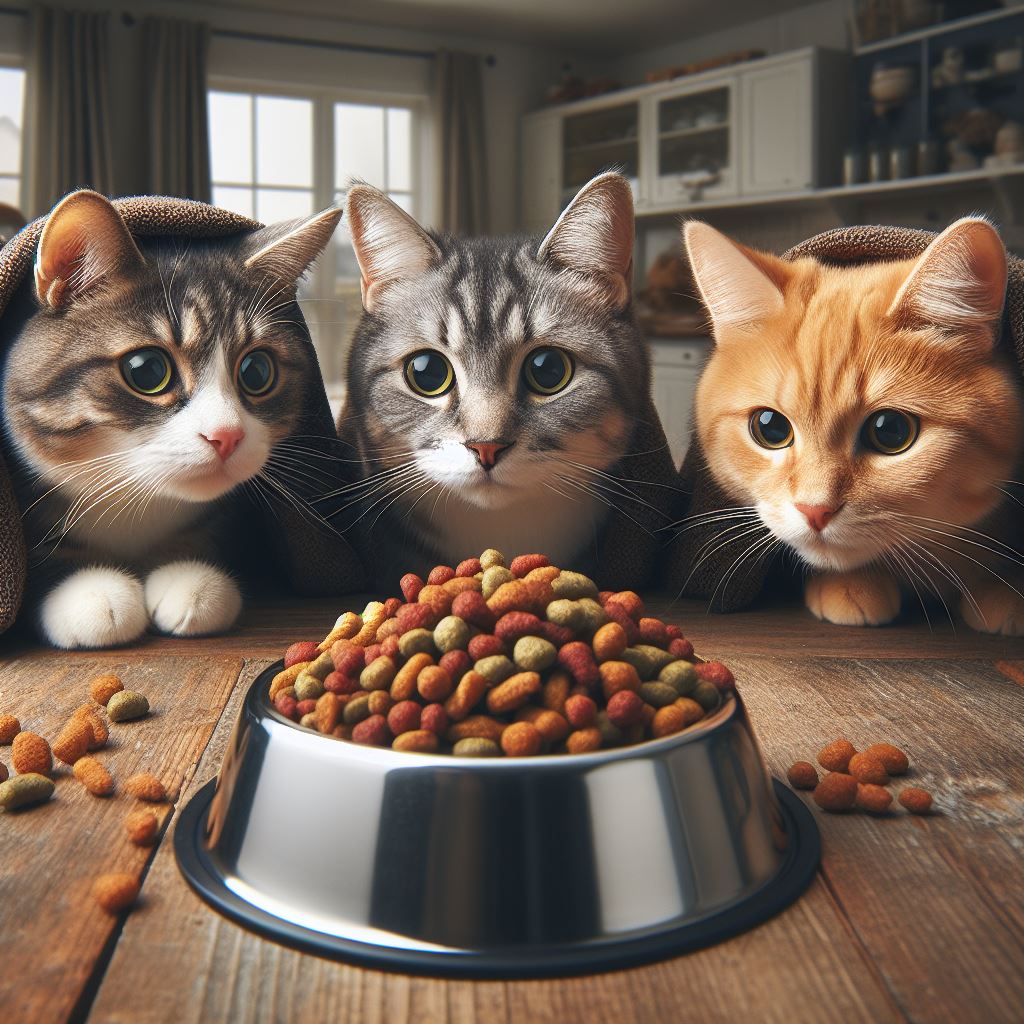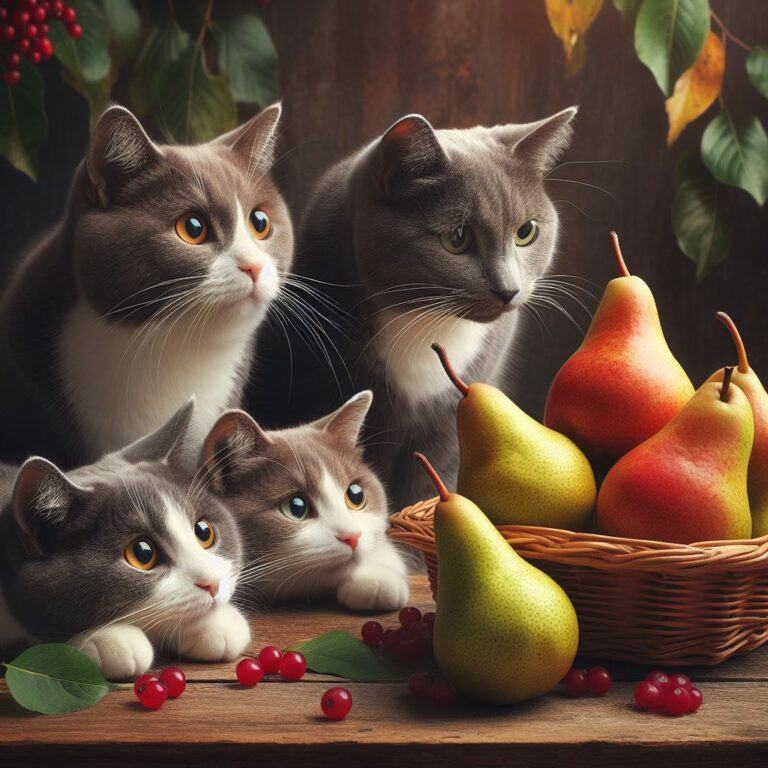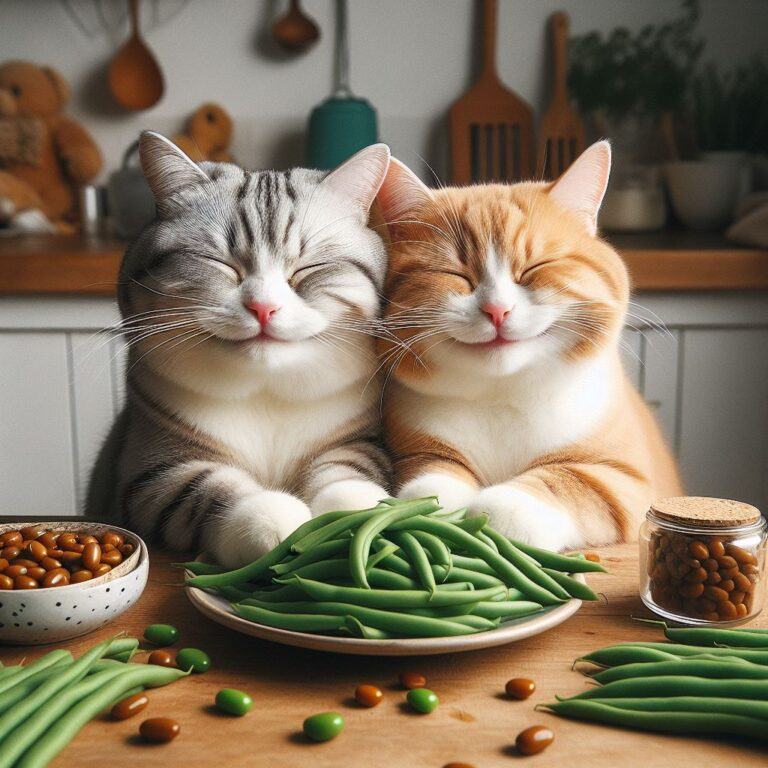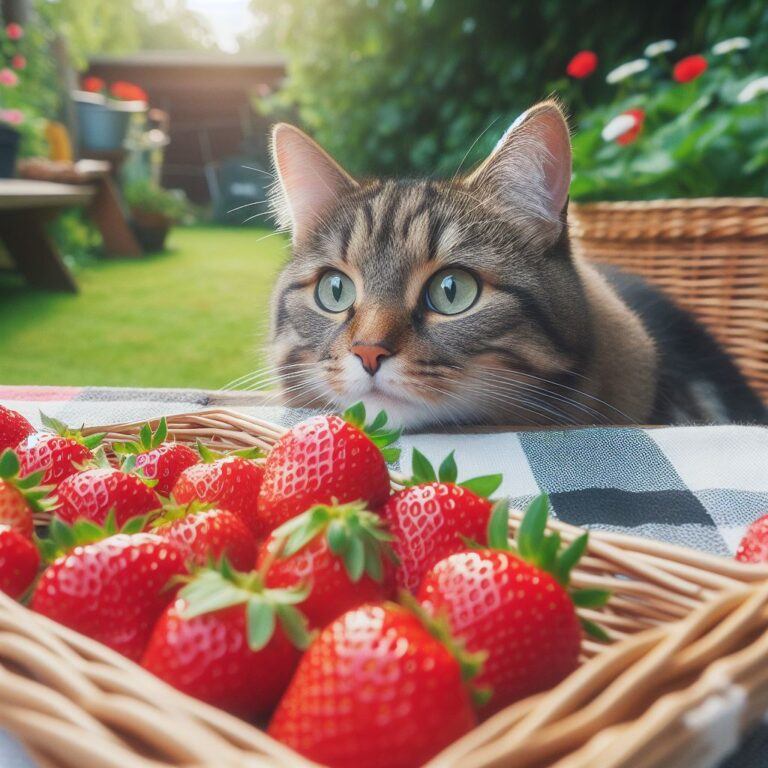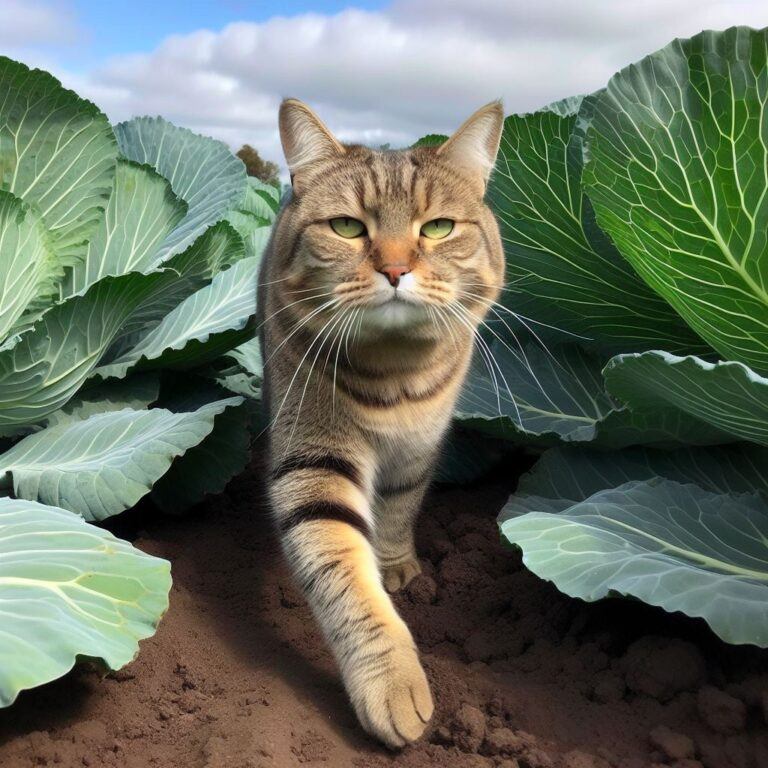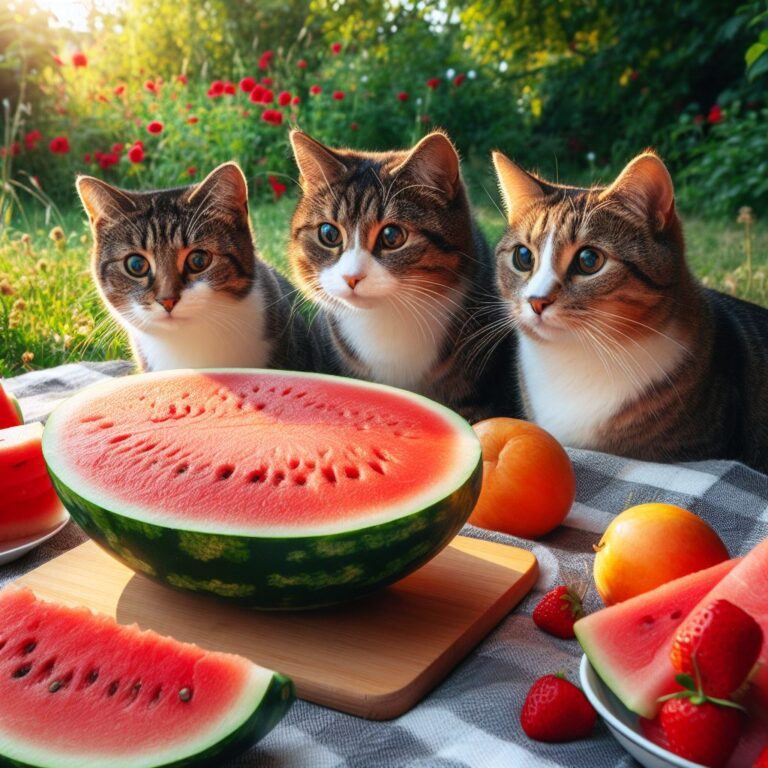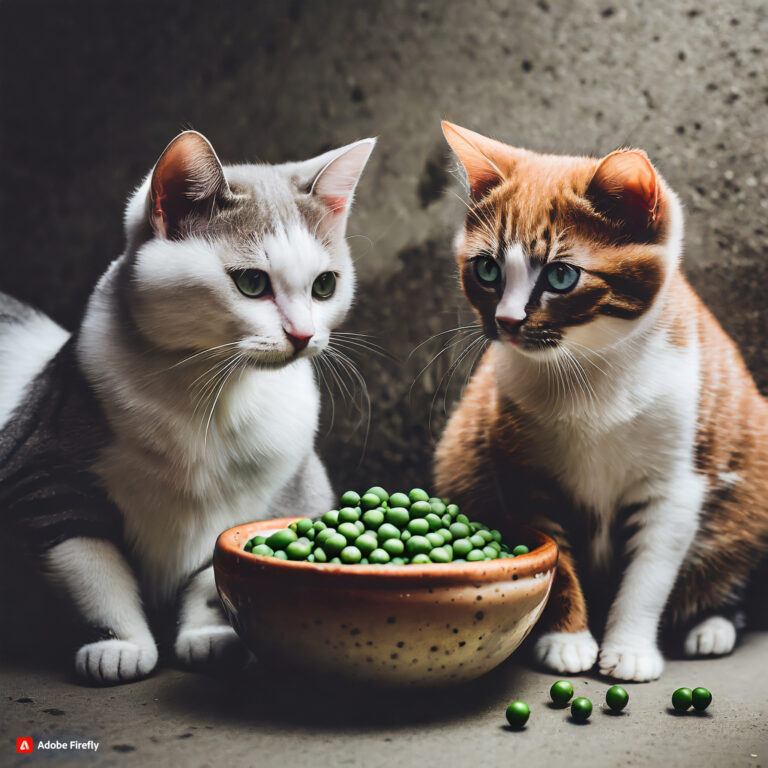Can Cats Safely Eat Dog Food
No, cats should not eat dog food as a regular part of their diet. While the occasional nibble won’t spell disaster, relying on dog food can lead to significant health issues for your feline friend.
You may think that dog food is just meat in a different package, but it’s not crafted with a cat’s unique dietary needs in mind. Dog food lacks certain nutrients that are vital for a cat’s health.
To merely survive, cats need several specific vitamins, amino acids, and a higher protein content than what dog food offers. One such crucial amino acid is taurine, which is absent or present in low quantities in dog food.
Without it, cats can suffer heart disease, vision problems, and other serious health issues. Great alternatives are fresh chicken or turkey!
Sometimes, you might catch your cat stealing a bite or two from the dog’s bowl. It’s not a reason to panic, but it’s also not a habit you should encourage. Think of it as letting them binge on junk food; it’s not poisonous, but it’s far from a balanced diet for them.
Understanding why cats should stick to their own menu goes beyond the surface-level differences between dog and cat food. Next up, let’s explore the tailored nutritional landscape that separates the diets of our canine and feline companions.
The Tailored Tastes of Tails: Why Cat and Dog Foods Differ
Cats and dogs are often looped into one category as pets, but when it comes to their diets, they differ drastically. Cats are obligate carnivores, which means meat isn’t just the top item on their culinary wish list; it’s essential for survival.
Dogs, on the other hand, are omnivores with a more flexible diet that includes both animal proteins and plant-based foods.
Taurine, an amino acid, is one such nutrient that highlights the difference between the two. While dogs can produce taurine and other amino acids on their own, cats cannot.
Cat food is specifically formulated to include taurine because without it, cats could develop serious health issues such as heart disease and vision problems.
Protein is another critical component. Cats require a higher protein intake than dogs, and their food is created with this need in mind. This is not only about quantity but also quality.
Cats need high-quality protein that’s easily digestible and includes all the necessary amino acids for healthy functioning.
Over time, a diet lacking in crucial nutrients can lead to a plethora of health problems for your feline friend. Poor coat quality, reduced immunity, and decreased muscle mass are just the beginning.
Prolonged feeding of dog food to cats carries the risk of severe medical conditions, like hepatic lipidosis, a potentially fatal liver condition.
So, while it might be convenient to feed both your pets from the same bag, resist the urge. Your cat’s health relies on a diet designed specifically for them, and compromise here could lead to significant health issues.
In the next section, we’ll delve into the actual consequences that can arise from feeding your cat dog food and how to recognize and prevent these issues.
Possible Consequences: The Impact of Dogs’ Dinner on Cats
Cats that repeatedly sneak into the dog’s food bowl may face health issues over time. It’s not just about the odd upset stomach; dog food lacks crucial nutrients that cats require for optimal health.
In fact, a diet high in dog food can lead to malnutrition and a myriad of health problems for felines.
One of the most notable signs of a cat feeding on a canine menu is a dull coat and lackluster energy levels. If you notice these symptoms or any major changes in your pet’s behavior, it’s HIGH TIME to consult your vet.
They can check for signs of malnutrition or deficiencies and guide you back to feline-friendly feeding practices.
Continuing to feed your cat dog food could result in serious health complications. Heart problems, vision and dental issues, and a weakened immune system are just a few of the unwelcome side effects. The bottom line? Keep your cat’s diet strictly cat-centric.
Prevention is simple: store dog and cat food separately, and keep an eye on your pet’s eating habits. If you find your feline friend feasting on Fido’s food, redirect their attention to their own bowl.
And if accidental ingestion becomes a habit, seek advice on how to create a cat-friendly environment that discourages dietary cross-over.
Remember, you are the guardian of your pet’s health. Making informed choices about their diet is a cornerstone of responsible pet ownership. Ensure your cat enjoys a long, healthy, and HAPPY life by providing meals packed with all the feline-specific nutrients they need.

